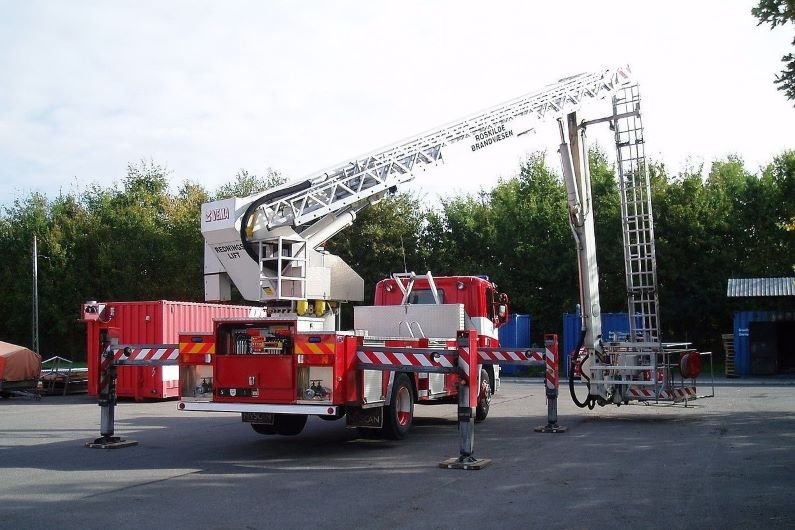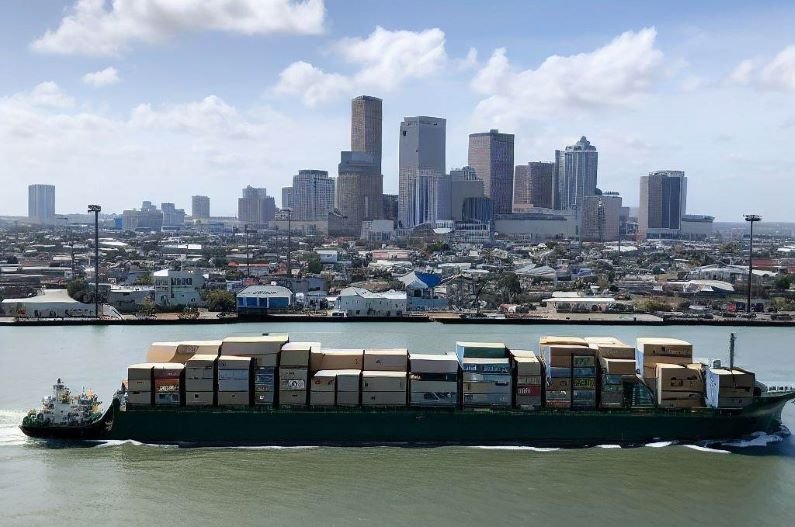The global economy thrives on the seamless movement of goods, and heavy equipment and oil machinery shipping to the Republic of the Congo from Houston, Texas, serves as a vital link in supporting the country’s development and growth.
From the heart of the oil industry in Houston to the lush landscapes of the Republic of the Congo, this article explores the intricate process involved in shipping these essential assets across continents and highlights their significance in fueling the nation’s progress.
Why Shipping to the Republic of the Congo Is Key
Natural Resources
The Republic of the Congo has abundant natural resources, which relies on the arrival of heavy equipment and oil machinery from Houston to drive essential industries.
Shipping to the Republic of the Congo, these powerful assets, including bulldozers and drilling rigs, become the backbone of construction projects, infrastructure development, and oil extraction.
They enable the efficient utilization of the country’s valuable resources, propelling sectors forward and supporting economic diversification.

Economic Development
As the Republic of the Congo develops, the seamless shipping of heavy equipment and oil machinery from Houston emerges as a vital lifeline.
It serves as the conduit through which progress flows, propelling industries forward, supporting infrastructure development, and empowering communities.
This vital connection ensures that the Republic of the Congo continues its journey toward prosperity, sustainability, and a brighter future for its people.
The Process of Shipping to the Republic of the Congo
Navigating the Logistics and Supply Chain
Shipping heavy equipment and oil machinery across continents involves a meticulous orchestration of logistics and supply chain management.
Shipping to the Republic of the Congo is no less complicated, from coordinating with manufacturers and suppliers to securing suitable vessels and carriers, the process requires meticulous planning and coordination.
Expertise in customs regulations, documentation, and international trade compliance is crucial to ensure smooth transit and adherence to legal requirements.
Securing Safe and Efficient Transport
The physical transportation of heavy equipment and oil machinery is a complex task that demands expertise in handling oversized and heavyweight cargo.
Specialized shipping companies with experience in heavy lift and project cargo are typically engaged to ensure the safe loading, securing, and transportation of these assets.
Proper packaging, lifting equipment, and adherence to safety standards are paramount to mitigate risks during transit.
Overcoming Geographical and Infrastructural Challenges
Heavy equipment and oil machinery shipping to the Republic of the Congo involves overcoming geographical obstacles and navigating diverse infrastructural conditions.
From vast oceans and turbulent weather conditions to varying port capabilities and inland transportation challenges, logistics providers must strategically plan the route and select the most suitable transportation modes to reach the final destination.
This includes a combination of sea freight, land transport, and possibly air freight for time-sensitive or critical components.
Supporting Economic Growth and Sustainability
Shipping to the Republic of the Congo also contributes to sustainability efforts.
By enabling the efficient extraction and utilization of natural resources, these assets help drive the nation’s energy sector and support infrastructure development.
Moreover, the expertise and employment opportunities generated in the process contribute to the upskilling and economic empowerment of local communities.
Mandatory ECTN for Shipping to the Republic of Congo
Shipping to the Republic of Congo requires an Electronic Cargo Tracking Note (ECTN)
This mandatory document tracks cargo ensures compliance with import regulations, and helps the Congolese government manage shipments and collect duties.
Why the ECTN Is Essential
The ECTN is required for all shipments—whether by sea, air, or land—to prevent fraud and streamline customs procedures.
Without a valid ECTN, your cargo could face fines, delays, or even seizure at the port of entry.
When and How to Get an ECTN
You need an ECTN for every shipment, including:
- Full Container Load (FCL)
- Less than Container Load (LCL)
- Breakbulk
- Project cargo
- Vehicles
To obtain an ECTN:
- Collect Documents: You’ll need the Bill of Lading, invoices, and packing list.
- Submit Your Application: Use an authorized ECTN agent or online platform.
- Pay the Fees: Costs vary by shipment value and volume.
- Receive and Keep the ECTN: It must be presented at the port of entry.
Avoiding Common Mistakes
- Submit Complete and Accurate Documents
- Apply Before Cargo Departure
- Ensure All Fees Are Paid
Consequences of Missing an ECTN
Shipping without an ECTN can lead to customs delays, hefty fines, and potential cargo impoundment.
It’s the shipper’s or freight forwarder’s responsibility to secure this document.
Stay Compliant
Make sure your ECTN is to avoid any disruptions. For help with ECTNs or other shipping documents, Texas International Freight can ensure a smooth, compliant shipping process.
Why Texas International Freight Is the Best Option When Shipping to the Republic of the Congo
When it comes to shipping heavy equipment and oil machinery between Houston and the Republic of the Congo, choosing the right logistics partner is paramount for a seamless and efficient process.
Texas International Freight emerges as the trusted ally that brings expertise, reliability, and exceptional service to the table. With our extensive knowledge and experience in oversized cargo transportation, we are the ideal choice to navigate the complexities of shipping to the Republic of the Congo from Houston and back.
We understand the unique requirements involved in transporting heavy equipment and oil machinery. Our team of seasoned professionals possesses a deep understanding of customs regulations, compliance standards, and the intricacies of international trade.
With our comprehensive knowledge, we ensure that all necessary documentation is in order, guaranteeing a smooth transit and timely delivery.
Safety and security are paramount when shipping valuable assets, and Texas International Freight excels in this aspect.
We have a proven track record in handling oversized cargo, employing stringent safety protocols, and utilizing state-of-the-art equipment for loading, securing, and transporting heavy machinery.
With our meticulous attention to detail, we provide peace of mind, knowing that your assets will arrive at their destination intact and in optimal condition.
The logistics journey from Houston to the Republic of the Congo involves overcoming geographical and infrastructural challenges.
Texas International Freight is well-versed in devising efficient routes, leveraging its network of trusted carriers, and coordinating seamless multimodal transport.
By optimizing sea freight, land transportation, and potentially air freight when time is of the essence, we ensure a streamlined process, reducing transit times and minimizing disruptions.
Ultimately, Texas International Freight stands out as the premier choice for shipping to the Republic of the Congo as our extensive expertise, unwavering dedication to customer satisfaction, and commitment to safety and sustainability set us apart.
Powering Progress: Shipping to the Republic of the Congo
The process of heavy equipment and oil machinery shipping to the Republic of the Congo from Houston and back is a vital undertaking that fuels the nation’s progress and economic development.
By bridging continents and overcoming logistical challenges, these assets become catalysts for growth, supporting industries, infrastructure projects, and sustainability efforts.
As the Republic of the Congo continues to harness its rich natural resources, the seamless transportation of heavy equipment and oil machinery remains an essential conduit, driving the nation toward a prosperous and sustainable future.





